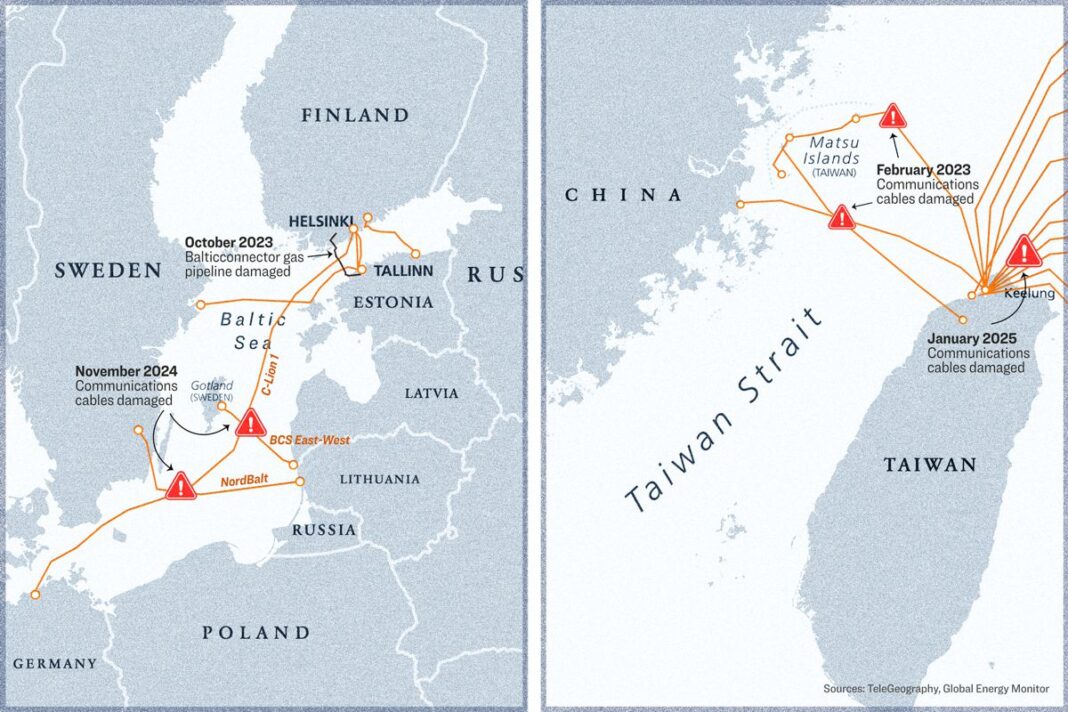Vessels operating out of communist China have been linked to major incidents involving the alleged sabotage of natural gas pipelines and other undersea cables.
Undersea cables crisscross the world’s waterways, connecting nations with power, natural gas, and ready internet access.
Hundreds of thousands of miles of these cables, sometimes no wider than a garden hose, traverse the globe, carrying roughly 97 percent of the world’s communications.
Their near-universal presence, however, and their importance in maintaining modern civilization have made them a rich target for international acts of aggression falling short of war, sometimes referred to as “gray zone” conflict.
In the last year and a half alone, there have been no fewer than 13 gray zone incidents in which submarine cables have been cut in what are believed to be acts of sabotage. The bulk of these alleged acts of disruption have been attributed to vessels from either China or Russia and have occurred in the Baltic Sea and the Taiwan Strait.
In both regions, the powers believed to be responsible stand to gain in their ongoing struggles, with communist China seeking to assert an ahistorical claim to the territory of Taiwan and Russia seeking to undermine the stability of the NATO alliance.
As such, the growing threat has raised fears that smaller nations such as Taiwan could suddenly be cut off from communication with much of the world or lose access to key energy supplies in the event of a conflict or other crisis.
In the East, Taiwan is now scrambling to secure its communications with the outside world against an attack by the Chinese regime. Still, the island nation lacks much of the infrastructure required to replace cable-based infrastructure, such as low-orbit satellites.
In the West, the NATO alliance is deploying warships, patrol aircraft, and drones to surveil the waterways and prevent a major act of sabotage, but is increasingly struggling with already limited defense and security budgets.
Unlike Russia, which has exclusively conducted such operations in the Baltic, vessels linked to China are alleged to have sabotaged cables in both regions, apparently as part of a wider strategy to undermine the existing international order and to increase the influence of its ruling Chinese Communist Party (CCP).
Here’s a look at four of the major cable-cutting incidents linked to China in the last two years.









